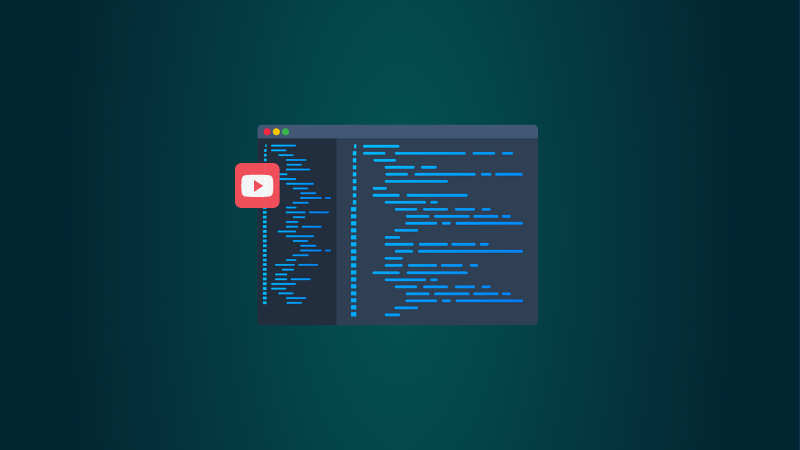
आवासीय प्रॉक्सीज़ ने 23 अप्रैल को 220,000 यूएस आईपी जोड़े।


AI वेब डेटा स्क्रैपिंग अनन्य प्रॉक्सी योजना [ असीमित ट्रैफ़िक, 100G+ बैंडविड्थ ]

 Language
Language

As one of the largest content platforms in the world, YouTube has a treasure trove of data about videos, channels, comments, and user interactions. Scraping YouTube data is extremely valuable for businesses and individuals looking to analyze trends, study content performance, or gain insights from comments.
Before we dive into scraping YouTube data, let’s first explore why scraping YouTube data is valuable:
Content Analysis: Businesses and content creators can track video performance, compare competitor metrics, or analyze video interactions through likes, comments, and shares.
Market Research: YouTube data provides insights into trending topics, consumer preferences, and sentiment analysis, which can be invaluable for product development or marketing strategies.
Influencer Analysis: Brands looking to work with YouTube influencers can collect data on influencer performance, audience demographics, and engagement metrics.
Research and Sentiment Analysis: Academics and researchers can scrape YouTube comments for sentiment analysis to study public opinion and behavior.
Competitor Insights: By analyzing competitor channels and videos, you can learn from their strategies, measure success, and identify trends that can be applied to your own business.

Before you start the scraping process, it is important to understand the legal considerations. Scraping content without YouTube's permission or violating the platform's Terms of Service can result in your IP being blocked or even facing legal action in extreme cases.
YouTube Terms of Service: YouTube prohibits scraping its platform without explicit permission. However, YouTube provides an official YouTube Data API that can be used to legally access public data such as video statistics, channels, and playlists.
Avoid scraping private data: It is important to only scrape publicly available data and avoid scraping private or restricted content, such as data behind a login or paywall.
LunaProxy's YouTube Scraper API is a convenient way to help users bypass YouTube's anti-scraping mechanisms and easily extract various types of data. Its features include:
Video Information Scraping: Get the title, description, tags, release date, number of views, number of likes, etc. of a video.
Comment Scraping: Extract user comments under a video, which can be used for sentiment analysis or user feedback collection.
Channel data crawling: Get information such as the number of subscriptions, number of videos, total views, etc. of a channel.
Proxy support: Prevent IP from being blocked through the built-in proxy service to ensure the stability of large-scale data crawling.
Create an account: Go to the LunaProxy official website to register an account.
Purchase API subscription plan: Choose a suitable subscription plan according to your needs. LunaProxy provides a pay-as-you-go model, which is very suitable for small projects with low data crawling frequency.
Built-in proxy rotation: With LunaProxy's API, you don't have to worry about IP being blocked due to excessive crawling. The API provides a built-in proxy rotation mechanism to ensure that each request uses a different IP address.
Simplified API request: LunaProxy's API is designed to be simple and easy to use. Whether you are a technical expert or a novice who has just started data crawling, you can quickly get started.
Diversified data formats: The API supports returning data in JSON format for subsequent processing and analysis.
Once you have scraped the necessary YouTube data, you need to store it in a structured format for analysis. Some popular options include:
- CSV files: Good for storing simple structured data, such as video statistics or comments.
- JSON: Good for storing nested data, such as detailed video metadata or comment threads.
- Databases: For large-scale scraping projects, storing data in a relational database (such as MySQL, PostgreSQL) or a NoSQL database (such as MongoDB) can be better organized and queried.
1. Respect YouTube's Terms of Service: Always pay attention to YouTube's terms to avoid potential penalties.
2. Limit request frequency: Avoid sending too many requests in a short period of time to prevent IP bans.
3. Use proxy rotation: If you need to scrape YouTube at scale, consider rotating proxies to distribute requests to multiple IP addresses.
4. Handle errors gracefully: Implement error handling to manage HTTP errors or connection issues during the scraping process.
5. Avoid triggering CAPTCHA:
Use delay strategies between requests.
Use headless browsing (e.g., Selenium in headless mode) to simulate human behavior.
Scraping YouTube data can provide valuable insights for businesses, researchers, and developers. By responsibly leveraging YouTube Data API technology, you can collect data about videos, channels, comments, and more. Remember to always prioritize legal compliance, ethical scraping practices, and data privacy when scraping data from online platforms like YouTube.
